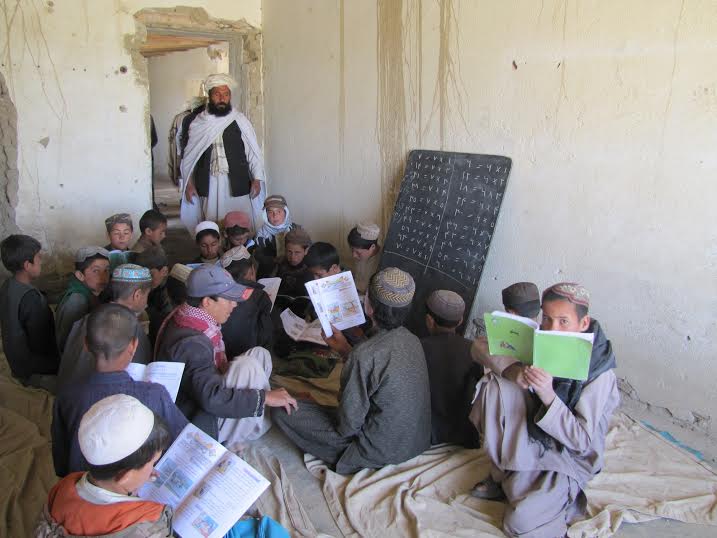GHAZNI CITY (Pajhwok): Almost half of the schools in southern Ghazni province are without buildings and students at these schools are taught under the open skies, residents say.
Mohammad Kamran, a resident of Gilan district, told Pajhwok Afghan News that most schools in the district had no buildings and students sat under sizzling heat.
“When there is raining and windstorm, our schools are closed,” the resident said and complained about a lack of professional teachers in the district.
Giru district resident Naeemullah told Pajhwok Afghan News the education had stopped creating hurdles to schools, teachers and students.
He also said most schools in the district were without buildings and people had dedicated their homes to schools.
“But the homes people have given schools cannot be called buildings because most of their rooms have no roof.”
Naeemullah said only two buildings for schools had been constructed in the Giru district during the past 15 years and the same structures now needed rehabilitation.
Similarly, a student at Shamsul Arifin school in Ghazni City, the provincial capital, Mohammad Ibrahim, said: “I would go to school in Ghogyani district but there were no teachers, teaching stuff would not reach us in-time and schools were without buildings and that was why I came to Ghazni City and got admission here.”
He said Khogyani was not the only district where such problems existed, but several others districts had the same problems. But not everyone could afford studying in Ghazni City due to economic constrains, he added.
A tribal elder in Rashidan district, Khalil Hotak, said students in the district faced problems due to a shortage of teachers and textbooks.
“Here we have no teachers and if there are teachers, they are less educated, they have only studies till sixth class.”
He said there was no significant security problem in the district, but most schools were without buildings and students were taught under the open sky.
Juma Khan, a resident of Ab-i-Band district, said schools in government controlled areas were operational, but most of them lacked buildings.
“Most of the teachers in our district have not completed 12 grade education and they cannot teach to class 10th, 11th and 12th.”
Juma Khan said every three students had been given one book of all subjects. He urged the education authorities to send professional teachers to the district and resolve other education related problems.
Likewise, a resident of Deh Yak district, Hamidullah, said the Taliban had told families to send their children to schools.
“The Taliban have said girls should get education up to 10th class and their teachers should be given salaries by parents not the government. The rebels have fixed an amount of money paid to teachers by families.”
The residents said Taliban’s ‘education officials’ used to visit schools and insist on increased teaching of Islamic books.
Provincial council member Hassan Raza Yousafi also confirmed problems plaguing the education sector of Ghazni.
He said 50 percent schools in the province lacked buildings and students in these schools were taught in the open.
“I understand the lack of school buildings is a nationwide issue, but the issue has no limit in Ghazni.”
He said the Ministry of Education had many times approved construction of buildings for schools but the projects could not be implemented due to a lack of interest on the part of provincial officials.
The provincial education officials acknowledge the mentioned problems. Education director Mohammad Abid Abid said there were more than 600 schools across Ghazni and 299 of them had no buildings.
“We also don’t have tents to provide to these schools in order children could be protected from heat and rains.”
The director said they were planning to absorb nearly 50,000 children in schools this academic year, but the shortage of schools was a hurdle in the plan’s implementation.
He said the issue had been shared with the ministry concerned and soon a solution would be found.
Education Ministry spokesman Kabir Haqmal also confirmed these problems in Ghazni and said the lack of school buildings was a national issue.
“Schools without buildings are in such a high number that they cannot be constructed in one or a few years. Therefore every year each province is allocated budget under special plans to construct school buildings.”
He said the Ministry of Education was addressing all these problems under an organised plan.
Ghazni education officials say half a million children, including girls, are enrolled in schools in the province taught by 8000 teachers, with professional teachers making 30 percent of them.
ma
Views: 1
